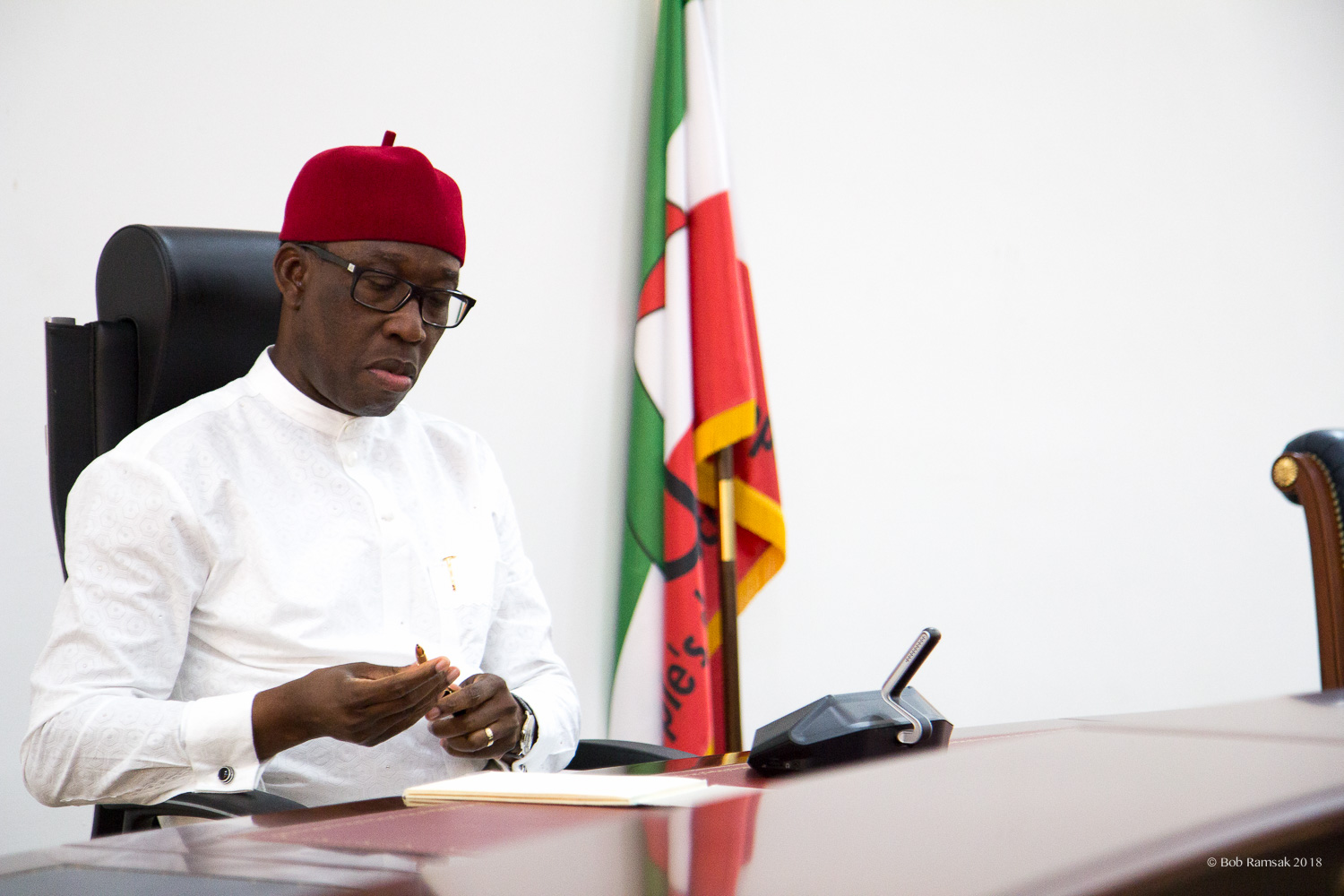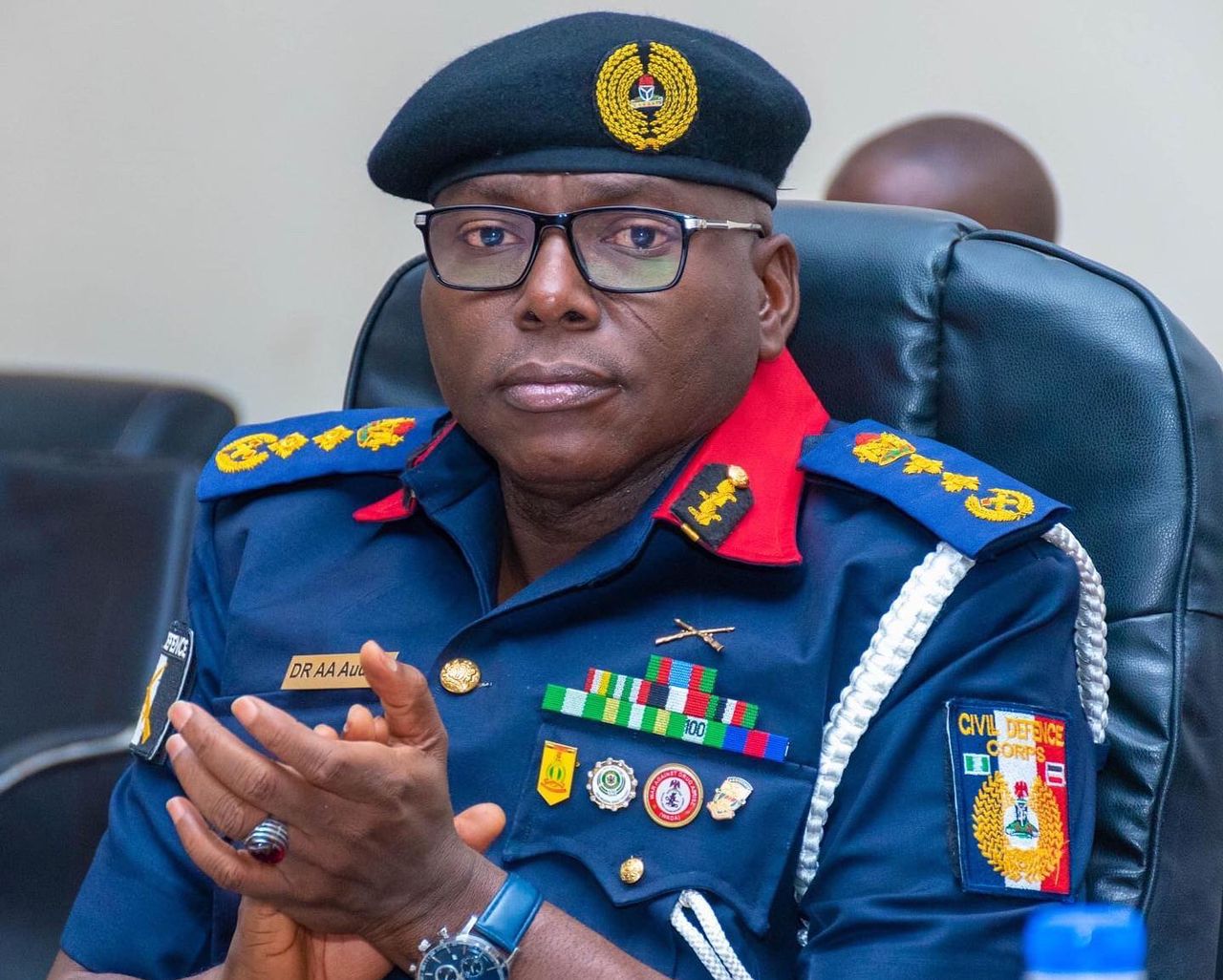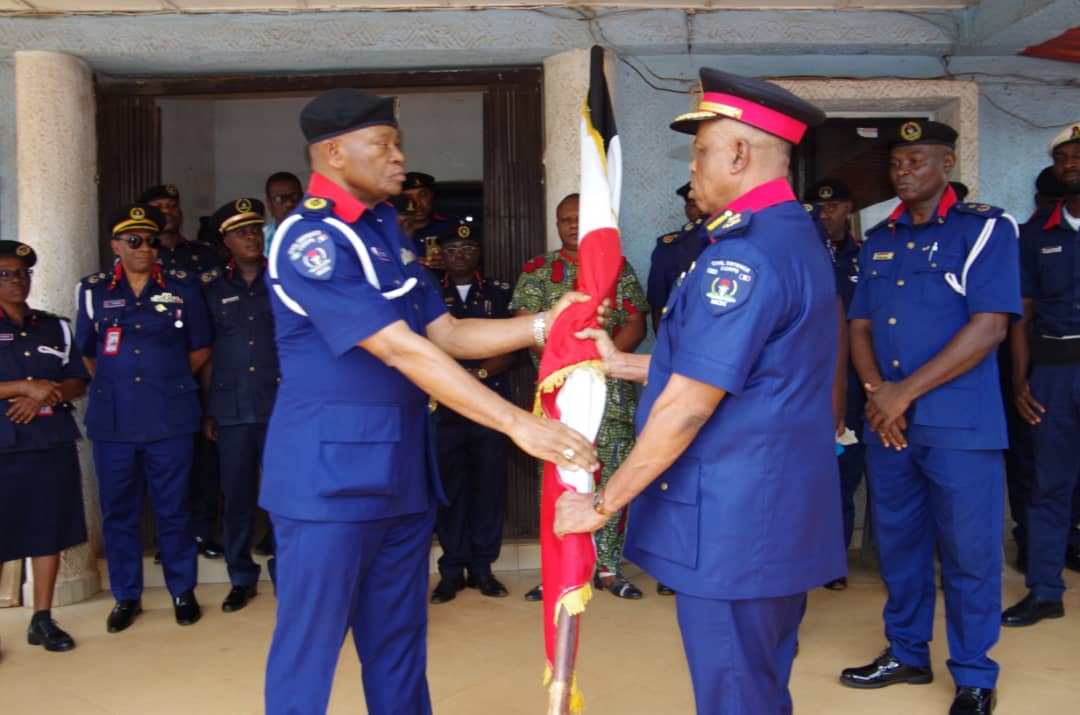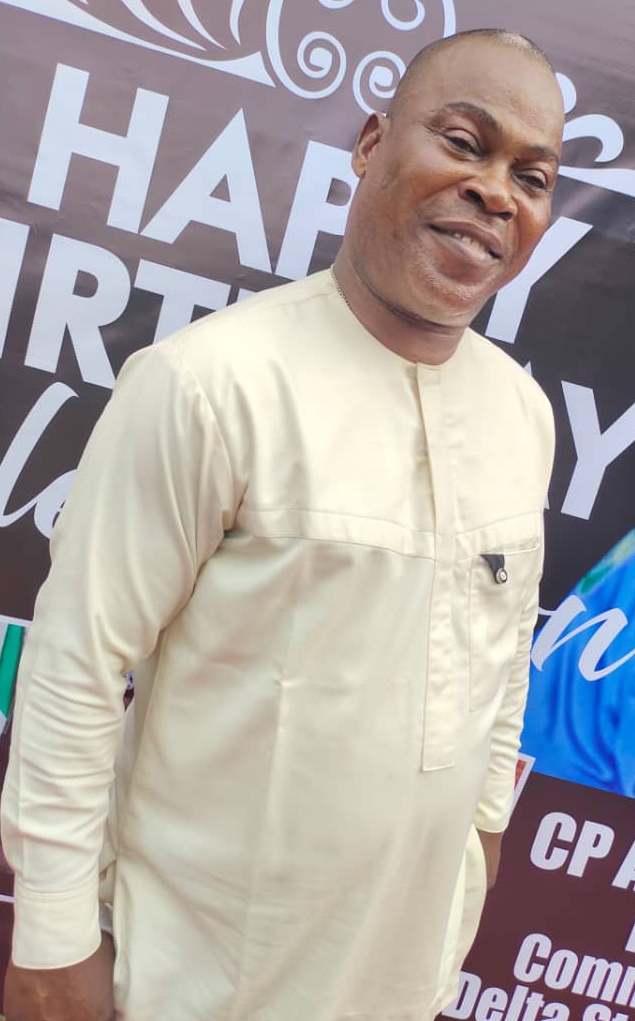
BEFORE HANDLING OVER THE BATON OF GOVERNANCE TO A NEWLY ELECTED SUCCESSOR, OKOWA’S EIGHT YEARS AS GOVERNOR
IN a matter of days, President Muhammadu Buhari will be handing over the baton of governance to a newly elected successor. Across the country, many governors will be doing the same. And as the reality of this development draws near, many people will certainly be saying what they will personally miss or remember about the outgoing governors.
For me, there is so much to remember and treasure about Governor Ifeanyi Okowa of Delta State even before he takes his bow out of office. Though I am not from Delta, my most recent visit to the state was a big eye opener. Before the visit, I had heard conflicting accounts of what the governor had done or failed to do.
For instance, I had read about views in some quarters that, in spite of the enormous resources at its disposal, the Okowa administration had failed to develop the state. But then I also read and heard of how Governor Okowa had done so much for the state, even transforming it into a development wonderland within the eight years he had been in office.
While I was still pondering over this, the opportunity to visit the state to confirm or dismiss the conflicting claims presented itself. I was invited to join a team of media professionals to visit the state recently. Indeed, what I saw during that short visit came as a pleasant surprise. Starting from Asaba, the state capital, all of us could not hide our amazement at what we saw. Although past administrations certainly deserve commendations for their contribution to turning Asaba into a befitting state capital, what was clearly evident was the Okowa signature in transforming Asaba into a modern city that can compete with the best in the country and beyond.
For me, it was also an opportunity to verify the claim that Okowa has significantly changed the narrative about the roads in the entire stretch of Delta State, which now boast some of the best roads in the country in terms of quality and durability. The popular refrain in many quarters, I had been told, is that the governor made it a point of duty to leave a legacy of improved road infrastructure and committed substantial funds to relevant projects for this purpose. And that is why most of the roads traversing the state today are of the highest quality, with virtually no potholes in sight during our visit. And in acknowledgement of that feat, Okowa is being hailed across the state and beyond as the veritable Road Master.
In the course of our tour, I was able to ascertain that the administration had carried out 883 road projects covering 1,932.14 kilometres. It also executed projects for the completion of six bridges, while 15 others are currently under construction. Particularly noteworthy is the special attention paid to the construction of drainage channels. We were told that before the Okowa administration came to office, flooding was a major challenge in many parts of the state, including Asaba, the state capital.
But it was a problem Okowa was determined to fix permanently. So, beginning in Asaba, the state government introduced the storm water drainage system that quickly put an end to the flood nightmare. A similar storm water drainage project has since been introduced in Warri, where flooding has for many years tormented residents of different communities.
We gathered that the perennial flooding problem often made it impossible to construct durable roads in that part of the state. But the good news is that people in Warri are today breathing a sigh of relief as flooding has become a thing of the past. Indeed, all Deltans have the Okowa administration to thank for the flood mediation intervention through the construction of drainage channels across the state, covering 1,035.95 kilometres.
Beyond Asaba, other major towns, including Ughelli, Agbor, Owa Oyibu, Warri, Sapele, Ozoro and counting have felt the impact of the roadmaster. However, one project that is ongoing and that the government has advanced to a considerable progress is the Asaba-Ughelli Expressway. Under the Okowa administration, the construction of the road has made considerable progress, with the positive impact of the road being a major beacon for the socio-economic progress of the state. The road project is one that acts as a unifier, connecting the three senatorial districts in the state.
Speaking on the impact of the project, Dr. Festus Okubor, who is Governor Okowa’s director of strategy, said that the road, when completed, would enable the state to tap into the potential of the Warri Port as it would draw the state into the advantages that the Warri and other ports offer.
He said: “This road is a major commercial necessity because, with the Federal Government having done the Ughelli-Patani, Warri-Patani-Port Harcourt Road, we can then leverage it to get the port in Warri busy because most of the goods arriving Lagos anyway are headed for Onitsha. So, for us, it is ambush marketing for this road to be good enough to carry containers without fear of their falling over. That will be a major incentive for them to ship their goods to Warri Port.
With this road, you can go from Oghara to Benin to Warri on a dualised road like this, which is a federal road, and then go from Warri to Ughelli on a road like this, and then come from Ughelli to Asaba on a road like this; this gives us a near complete ring road around the state. Then, as you go, you will see a lot of roads that are constructed, spurring out of this road to link up the villages and local governments of the state.”
Beyond the roads, the Okowa administration has also been able to connect distinct parts of the state together through major bridges linking otherwise disconnected sections of the state. Besides the landmark Koka Flyover and Interchange in Asaba that has transformed the entry point into the state capital, other bridges include the Ovwor/Effurun-Otor Bridge in Ugheli South Local Government Area, the Oha/Orerokpe/Oviore Bridge in Okpe Council, and the Agbarho/Orherhe Bridge.
Other bridges constructed by the Okowa administration include the Over Rail crossing at Agbor, the Ovwor/Effurun-Otor bridge, the Agbarho/Orherhe Bridge, the Oha/Orerokpe Bridge and two pedestrian bridges in Asaba. Also constructed were the Ayakoromo Bridge across the Forcados River, five trans-Warri project bridges, the Ogwashi-Uku Twin Bridges across the Obo River, the Orere Bridge, the Obiaruku Bridge, the Isheagu Bridge, the Beneku Bridges, the Ibusa Junction (Koka) Flyover along the Asaba/Benin Expressway in Asaba, the Ovrode/Ofagbe Bridge, and the Ewulu/Isheagu Bridge.
When the visiting journalists arrived at the Ewu-Orere Bridge site, the project manager, Frank Uwuseba, was asked about the significance of the project and he said that when completed, the people’s long dependence on canoes for ferrying their goods across to one another would come to an end, besides giving them a direct link to Bomadi communities. “Before now, the villages from either divide always used canoes to access neighbouring communities.
Those with motorcycles are also ferried across, but as you can see, the owners of these cars parked here had to leave them behind. But, by the time the bridge is up for use, cars and their owners will enjoy easy passage,” Uwaseba said.



